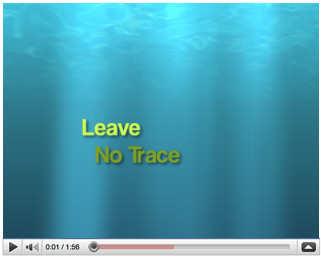 This is the first rule of camping and I feel it should also be the first rule of inter-office relationships that have suddenly, unexpectedly gone awry. And while some moments surely are more shocking and distressing, few things feel as shocking and distressing as inadvertently saying or doing something that is simultaneously hideously embarrassing to you and to the person you’re speaking with. A close friend noted this when he asked his colleague who wasn’t pregnant when her baby was due– an ill-fated remark that led to his simultaneous desire to both lie down and die and flee the country.
This is the first rule of camping and I feel it should also be the first rule of inter-office relationships that have suddenly, unexpectedly gone awry. And while some moments surely are more shocking and distressing, few things feel as shocking and distressing as inadvertently saying or doing something that is simultaneously hideously embarrassing to you and to the person you’re speaking with. A close friend noted this when he asked his colleague who wasn’t pregnant when her baby was due– an ill-fated remark that led to his simultaneous desire to both lie down and die and flee the country.
What I’ve learned over my own years of sadly misplaced remarks is that there is no ‘fixing’ what’s occurred, nor is there any possibility of ‘brushing it off.’ It happened, everyone’s appalled, deal with it – and then let it go. Don’t retread; it will just make it worse for both of you (more on how to move on in a moment).
The second thing to remember is that your goal cannot be to receive absolution from the person in question—you screwed up, you need to eat it. Don’t ask for their forgiveness. If they want to give it to you, congratulations to you, but don’t ask for it.
Third, don’t get into what you were thinking when you said it. This is verbal quicksand, and if you thought you were dying before, you’ll swiftly discover things can get worse.
So, keeping the above in mind, what did I counsel him to do should this happen again? (Despite his claim he will never again acknowledge a woman’s pregnancy until her water breaks on his feet.)
- Don’t vanish. Stay put. Breathe.
- Stay specific. “I’m so sorry. I didn’t mean to say anything that would distress you.” (Note: if you are someone like me—who appears to be hardwired for nervous laughter in moments of this kind—it is particularly important for you to look and sound sorry. This won’t be easy. It will, however, be easier, if you took a moment to breathe, as mentioned above.)
- After that, stop talking. Don’t joke, don’t explain what you were thinking, don’t ask for forgiveness.
- Allow them to say how they feel about what’s occurred. If they’re upset, wait it out. If they brush it off, you shouldn’t. In either case, my recommended exit line is, “Please let me say again how sorry I am.”
What I’ve learned since my friend first told me of his horror-filled moment, is that this particular gaffe occurs far more often than any of us would wish—and reactions tend to vary wildly depending on the people involved: friends and clients have encountered laughter, tears, initial good humored understanding followed by latent hostility…you name it. Further probing revealed that those who recovered most quickly and completely had, essentially, followed the formula above.
The fact is that we all make mistakes- we all long for the rewind button. Given that perfection eludes us all, you’ll go further, faster if you change the focus from how you screwed something up to how you cleaned it up.
Frances Cole Jones
Watch the YouTube Video

